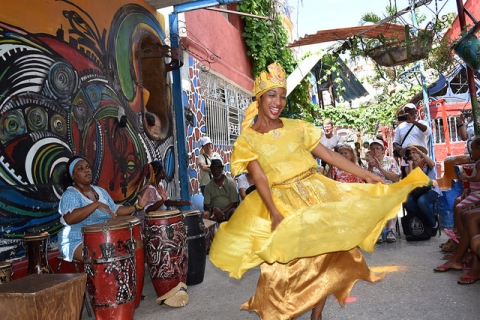
Eddings discovered that Cubans were eager to find out more about the United States. This new program should help fill the void.
Last August, I made my first trip to Cuba as part of a group touring farms and gardens. I’ve traveled to dozens of countries as a journalist and manager of media training programs, but this island nation just south of Florida held such fascination that I latched onto a chance to see it as a tourist, on an officially approved people-to-people cultural trip. Secretary of State John Kerry preceded me by a week, opening the U.S. Embassy for the first time in 50 years and marking the beginning of a thaw in U.S.-Cuban relations.
The Cubans we met during 10 days on the island – at farms, gardens, bars, restaurants or in casual conversations on the street – were just as interested and curious about the United States as we were about Cuba. But they had very little independent news to help bridge the wide gulf between people in the two countries.
Their questions ranged from the general (How is life in America? What do Americans think about Cuba?) to the specific (Are Americans seriously considering Marco Rubio and Ted Cruz for president? Couldn’t Obama run again?). Several of the conversations centered on the U.S. presidential election, perhaps because two Cuban-Americans are running for the Republican nomination.
A new program of the International Center for Journalists (ICFJ) is designed to close this information gap by bringing independent Cuban journalists to Miami to work with their counterparts in Spanish-language newsrooms. Thanks to $110,000 in funding from Knight Foundation, the teams will produce multimedia stories that chronicle the changing relations and their impact on communities on both sides of the Florida Straits.
Five Cuban journalists will receive hands-on multimedia training from media professionals in Miami over the course of one year. They will put their new skills to work alongside U.S. journalists and participate in the International Symposium on Online Journalism hosted by the Knight Center for Journalism in the Americas at the University of Texas at Austin. After returning home, the Cuban participants will share their new skills with colleagues on the island, expanding the network of journalists who receive training in multimedia storytelling tools and techniques.
The new ICFJ program offers benefits to both Cuba- and Miami-based journalists. The aim is that the two communities of journalists will engage in meaningful conversations about Cuba in the South Florida community and about the United States among citizens of the island nation. In the end, the Cubans will be able to better answer those basic questions that I fielded in Havana (and judge for themselves what they make of American life and politics).